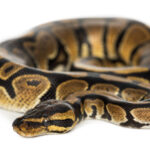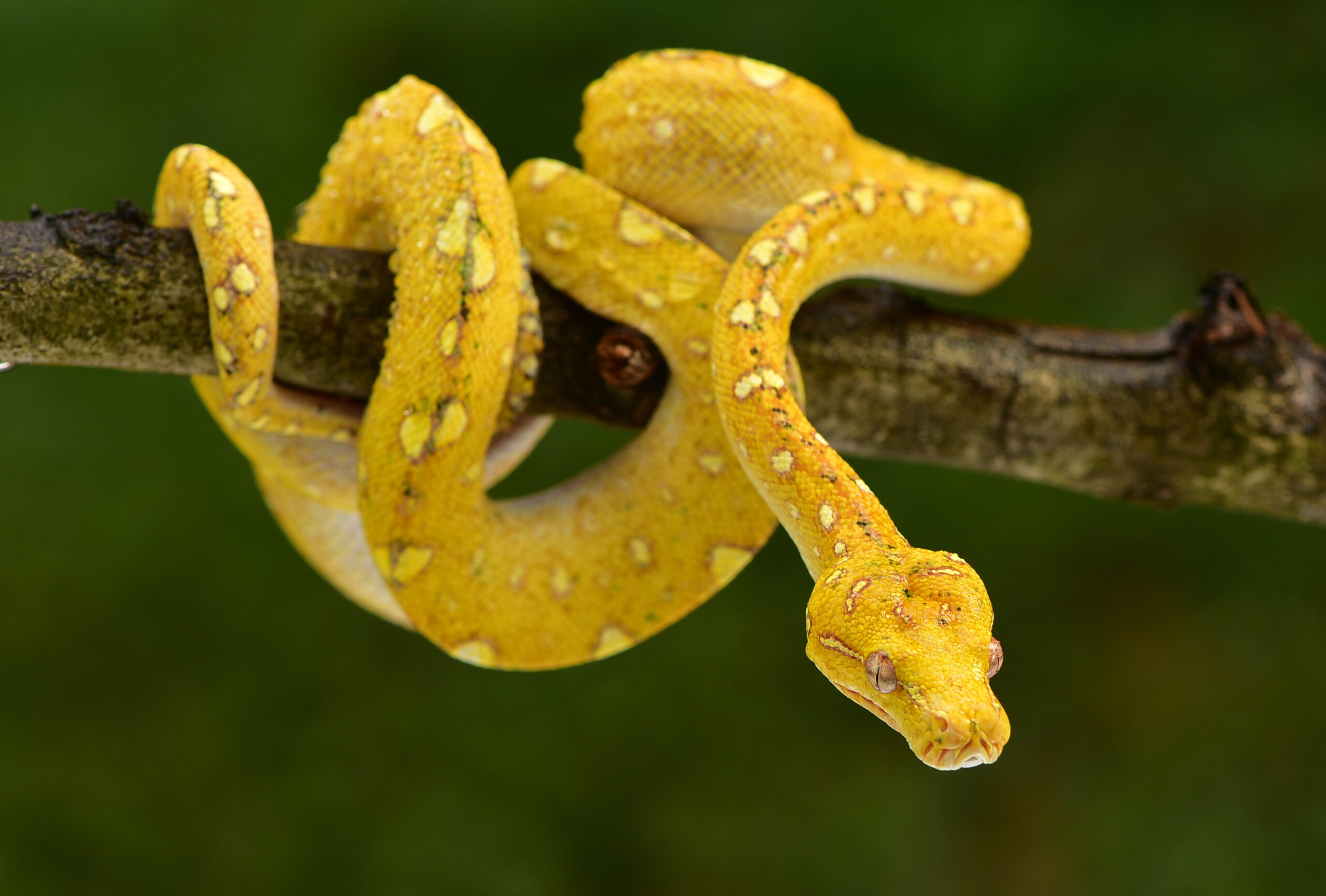Snakes, with their mesmerizing patterns and incredible adaptability, have long been a subject of fascination for many people. However, one question that often arises is how long these remarkable creatures live in the wild versus in captivity.
In this comprehensive guide to snake lifespans, we’ll explore the average life expectancies of common species both in their natural habitats and as pets, delve into factors affecting their longevity, and share helpful tips on extending your captive snake’s lifespan.
Key Takeaways
- Snakes in the wild have a shorter average lifespan of 10 to 15 years compared to those living in captivity, which can live up to 13 to 18 years.
- Proper diet and nutrition, habitat and climate conditions, as well as genetics, can all have a significant impact on a snake’s lifespan.
- Providing a balanced diet and suitable living conditions, regular veterinarian checkups, and proper handling techniques are essential for extending the lifespan of your pet snake.
- Understanding each species’ unique dietary requirements is crucial not only for ensuring good health but also correlating it with optimal lifespans both in captivity and the wild.
Snake Lifespan – In The Wild Vs
Snakes in the wild have a shorter average lifespan of 10 to 15 years compared to those living in captivity, which can live up to 13 to 18 years.
Average Life Expectancy Of Common Snake Species In The Wild
Snakes exhibit a wide range of lifespans in the wild, depending on their species. The table below provides a summary of the average life expectancies of some common snake species in their natural habitats.
| Common Snake Species | Average Lifespan in the Wild |
|---|---|
| Corn Snake | 6-8 years |
| Garter Snake | 2 years |
| Green Anaconda | 10 years |
| Brown Snake | Varies, but typically shorter than in captivity |
It is important to note that these figures represent average lifespans, and individual snakes may live longer or shorter lives depending on various factors such as diet, habitat, and genetics.
Average Life Expectancy Of Common Captive Snake Species
The life expectancy of common captive snake species varies greatly depending on the species and the quality of care they receive. Here is a table showcasing the average lifespan of some popular pet snake breeds in captivity:
| Snake Species | Average Lifespan in Captivity |
|---|---|
| Corn Snake | 15-20 years |
| Ball Python | 20-30 years |
| California Kingsnake | 15-25 years |
| Rosy Boa | 15-25 years |
| Garter Snake | 15-20 years |
| Green Tree Python | 15-20 years |
| Boa Constrictor | 20-30 years |
| Reticulated Python | 15-20 years |
| Carpet Python | 15-20 years |
| Hognose Snake | 12-15 years |
Factors That Affect Snake Lifespan
Proper diet and nutrition, habitat and climate conditions, as well as genetics, can all have a significant impact on a snake’s lifespan.
Importance Of Diet And Nutrition
A snake’s diet plays a crucial role in determining its overall health and lifespan. Being carnivores, snakes rely solely on consuming animal prey to satisfy their nutritional needs.
Different species of snakes have varying preferences when it comes to what they eat; some prefer rodents, while others consume amphibians, birds, or other reptiles.
Proper nutrition is essential for the growth and maintenance of a snake’s body functions. Snakes require an adequate intake of vitamins and minerals from their food sources to maintain healthy skin-shedding processes and support muscle development.
A balanced diet ensures that captive snakes receive all necessary nutrients without overeating or being undernourished.
Moreover, the method by which snakes kill their prey also impacts their dietary choices and ultimately affects their lifespan. Venomous snake species use venom injections through fangs to subdue prey quickly before consumption, while constrictors like boa constrictors wrap around victims tightly until they suffocate before feasting on them whole.
Effects Of Habitat And Climate On Snake Lifespan
The habitat and climate can have a significant impact on the lifespan of snakes. A snake’s environment plays a crucial role in its ability to forage, avoid predators, reproduce, and regulate body temperature.
For example, many species of water snakes require clean freshwaters with ample prey options to thrive. However, these environments are often impacted by human activities like construction projects or agricultural runoff that pollutes watersheds leading to reduced population sizes and shorter lifespans.
On the other hand, captive snakes enjoy stable living conditions with regulated temperatures and consistent food sources that contribute to longer lifespans. Proper husbandry practices like providing adequate space for movement and hiding spots help reduce stress levels in captivity leading to improved health outcomes which translate into longer life spans for pet snakes.
Genetic Factors
Alongside the environment and diet, genetic factors also play a significant role in determining a snake’s lifespan. Some species are naturally predisposed to live longer due to their genetics.
For example, ball pythons have been known to live up to 30 years in captivity, while kingsnakes typically only live for around 10 years on average. Additionally, certain genetic abnormalities or mutations can negatively impact the snake’s health and lifespan.
Overall, while genetics is an essential component of a snake’s life expectancy, owners need not worry too much since providing excellent nutrition and proper care can help combat any underlying genetic factors that may be present.
Tips For Extending Your Snake’s Lifespan
To ensure that your snake lives a long and healthy life, it’s important to provide them with a proper diet and environment, regular veterinarian checkups, and proper handling techniques.
Providing A Proper Diet And Environment
Providing a proper diet and environment is crucial to extending the lifespan of your pet snake. Here are some tips:
- Research what type of food your snake needs based on its species and size. Generally, snakes eat whole prey, such as mice or rats.
- Ensure that the prey is appropriately sized for your snake to prevent choking or digestion issues.
- Provide fresh water at all times and change it regularly.
- Maintain the appropriate temperature and humidity levels in the enclosure, using heat lamps or heating pads if necessary.
- Choose an appropriate enclosure size for your snake, with proper substrate material for burrowing or climbing.
- Clean the enclosure regularly to prevent bacteria growth and ensure a healthy living environment for your pet.
By providing a balanced diet and suitable living conditions, you can help ensure that your pet snake lives a long and healthy life.
Regular Veterinarian Checkups
It’s essential to take your pet snake for regular checkups with a qualified veterinarian. Snakes are prone to respiratory infections, mites, and other health issues that may not be apparent until they become severe.
In addition, regular checkups provide an opportunity for your vet to monitor the overall health of your snake and recommend any changes in diet or environment that may be necessary.
Proper Handling Techniques
To ensure the health and safety of both you and your pet snake, it’s important to handle them properly. Always support their head and keep a firm grip on their body, taking care not to squeeze too tightly.
Additionally, it’s crucial to wash your hands thoroughly before handling your snake and avoid having any scents of food that could be mistaken for prey. By following these simple steps, you can help minimize stress on your pet snake and prevent accidents or injuries during handling sessions.
Conclusion
In conclusion, understanding the lifespan of snakes is crucial for proper care and management, whether in captivity or the wild. Factors such as diet and nutrition, habitat and climate, and genetics can all have an impact on a snake’s lifespan.
By providing a suitable environment with regular veterinary checkups, owners can ensure their pet snakes live long and healthy lives.
FAQs:
What is the average lifespan of a snake in the wild?
The lifespan of a snake in the wild varies depending on its species, with some living only a few years while others can live up to several decades.
How does captivity affect the lifespan of snakes?
Snakes that are kept in captivity may have longer lifespans than those living in the wild due to being protected from predators and having access to consistent food sources. However, improper care or diet can shorten their lifespan.
Which species of snakes live longest in captivity?

Bowhead snakes and ball pythons are known for being able to live up to 30 years or more when kept as pets with proper care and attention.
How can I help ensure my pet snake lives a long life?
Providing your pet snake with appropriate housing, diet, and veterinary care is essential to ensuring they live long healthy lives in captivity. It’s critical you research your specific breed requirements before getting started so you know what will be necessary for them specifically such as temperature ranges & humidity levels when creating their home environment.




